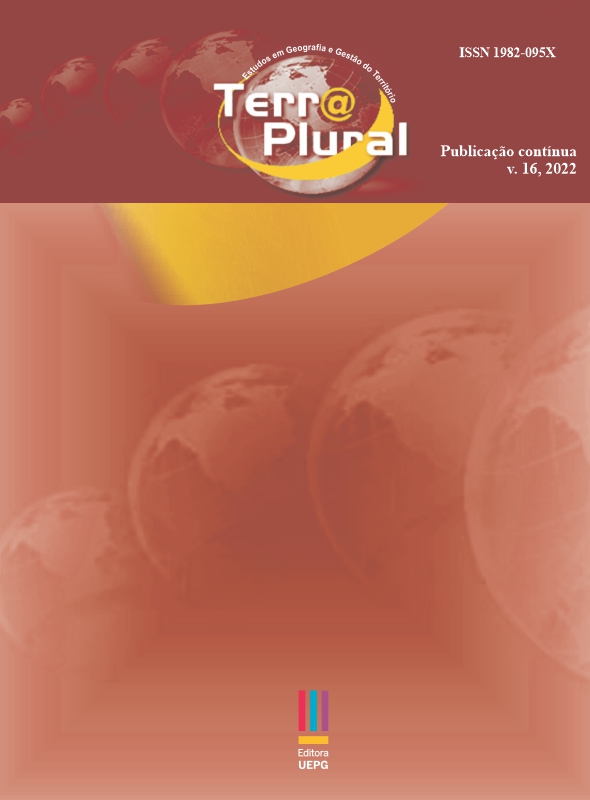Household solid waste management practices in Mossoró, Northeast Brazil. a case study in times of pandemic
DOI:
https://doi.org/10.5212/TerraPlural.v.16.2220590.029Keywords:
Waste Management, COVID-19, Urban Sustainability, ImpactsAbstract
This paper investigated the household practices developed in the disposal of waste in the city of Mossoró, RN, during the pandemic period. Through an online form with 16 open and closed questions, the research reached 71 people in 21 different neighborhoods and the rural area of the municipality. It was found that most respondents did not know about the selective collection service in their neighborhoods or place of residence, as well as lacked knowledge about the separation of waste. Furthermore, 57% of the people stated that there was an increase in household waste during the pandemic, with 26% pointing to an increase in organic waste and plastic packaging. It is clear, therefore, the importance of the performance of the state and municipal sphere in the management of solid waste and compliance with the National Solid Waste Policy (PNRS). Strategies for the operationalization of socio-environmental policies must also be developed in times of crisis, since the selective collection was paralyzed during the COVID-19 pandemic, harming the associations of recyclable waste pickers and the management of solid waste, since this material ended up in the local landfill.
Downloads
Downloads
Published
How to Cite
Issue
Section
License
Copyright (c) 2022 Terr@ Plural

This work is licensed under a Creative Commons Attribution-NonCommercial-NoDerivatives 4.0 International License.
Revista Terr@ Plural will obtain the auctorial rights for all published texts. This also implies that the text can be published anywhere in the world, including all rights on renewal, expansion, and dissemination of the contribution, as well as other subsidiary rights. The authors get permission to publish the contribution in other media, printed or digital, it may be in Portuguese or translation since the publication is credited to Revista Terr@ Plural. It allows the self-archiving of published articles in institutional repositories, thematic repositories, or personal web pages in the pdf version downloaded from the journal's site.















